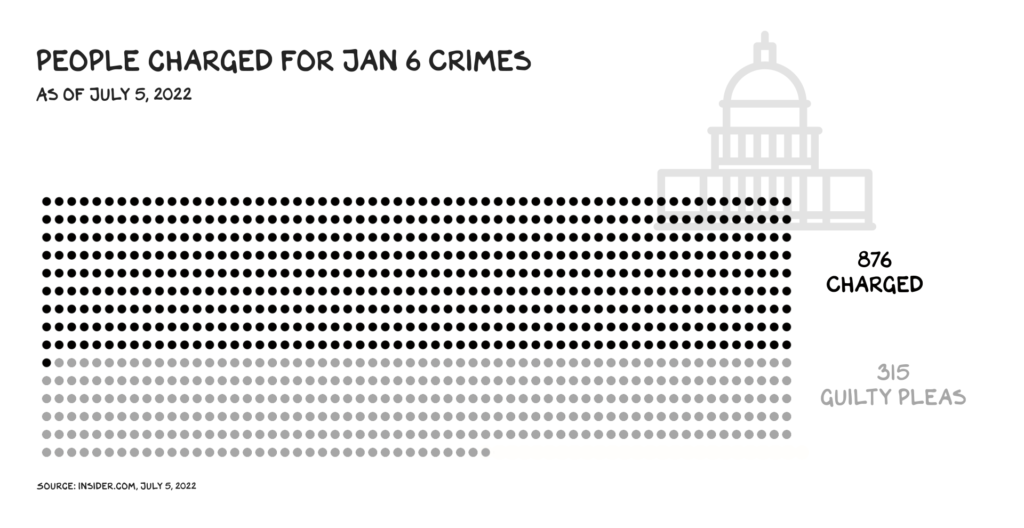“Power doesn’t just create bad actors, it creates ineffective actors. Immorality is not the biggest threat in business and politics. That’s easy to identify and bleach from the ecosystem. It’s amorality that is the bigger threat – people ignoring the externalities of their actions” – Scott Galloway

16 July 2022 – About 1 week after the fall of Boris Johnson, I got an email from a long-time British friend (now happily ensconced in Italy in a palatial spread that could have been the setting for My House in Umbria) and he lamented “the British press has moved on”. Now all the talk was about the rapid-fire leadership contest in which Tory hopefuls
“… will stab one another in the front, side and back for a couple of weeks before the two survivors are presented to the party membership with the apparent aim of selecting whoever is madder. This rat race is absolutely transfixing, it must be admitted: the sweet schadenfreude of seeing the candidates’ past and present venality fully exposed is given a peculiarly masochistic edge by the knowledge that one of these bastards is actually going to be prime minister. But I wish I could press pause because I haven’t yet moved on from Boris: having feasted on a glut of political obituaries, I still find myself awake at night with indigestion”.
He said there was nothing fun about the political death of Theresa May. You went from hating to pitying her the moment you saw her outside Downing Street for the ritual resignation speech. “Who would do such a job?” you asked yourself in the face of her evident pain. Nor was David Cameron’s demise fun either, if only because we were all in shock that his response to losing the Brexit vote – which he seemed to have organized on a whim – was to leave everyone else to hold the baby while he repaired to the Cotswolds to play tennis with his mates and write a memoir in his luxury shed.
With Boris, by contrast, it was as if we’d come to a collective agreement to put him in the stocks and throw tomatoes at him. Some of my favorite lines from unnamed insiders: “Boris Johnson is the third prime minister to be brought down by Boris Johnson”; “Boris couldn’t run a piss-up in a brewery, but he did run a piss-up in Downing Street”; “The Tory party has finally developed herd immunity to Boris Johnson”; “The problem with Boris is his personal pronouns, which are me, me and me.”
Well, you live as a clown, you die as a clown.
But, as my friend noted, he would not have lasted so long had it not been for enablers. He sent me this meme which I shared across Twitter and Linkedin:

Powerful people always seem to have the ability to override guardrails. It is what many media pundits call “the idolatry of innovators”. It is the misguided notion that people (usually men) of great achievement (usually in tech) should not be criticized, are not bound by a code of ethics, and are above the law. Obviously this is bad for society and, eventually, for the innovators themselves. Constraints are (allegedly) essential to enduring innovation. Corruption and economic growth are inversely correlated. Resistance builds strength, and a level playing field rewards talent vs. cronyism. Humans operate poorly in the absence of limits/structure, and given free rein we lean into narcissism and dissipation.
Too simply put, perhaps, but that’s the general thesis. Scott Galloway has noted:
Dr. Merete Wedell-Wedellsborg, a psychologist who studies powerful executives, military operatives, and law enforcement personnel, has found the action (or more often inaction) of those surrounding powerful leaders is critical to their unethical behavior. Enablers develop a “cultural numbness” to the behavior of their leaders (whose past successes justify liberties) that eventually gets baked into the culture of an organization.
Ken Auletta’s biography of Harvey Weinstein, subtitled “The Culture of Silence”, explores how abusers foster “a culture that normalizes the abnormal.” Powerful people have typically demonstrated outsize talent or made a large contribution to society, so there’s always cloud cover or even some justification for their missteps. We’ve developed an entire mythology around artists and innovators whose excesses are positioned as features not bugs. Picasso was terrible to his romantic partners (two committed suicide), but Wikipedia launders his misogyny: “The women in Picasso’s life played an important role in the emotional and erotic aspects of his creative expression, and the tumultuous nature of these relationships has been considered vital to his artistic process.”
No, he was an asshole.
Since Steve Jobs, the gestalt in tech is that a talented, nice CEO … is talented. A talented CEO who is unreasonable is a genius. The powerful skirt guardrails, and remove them altogether with enablers. For enablers, criticism of the leader, no matter how justified, feels like criticism of the followers who’ve accepted his behavior. Shamelessness becomes the leader’s superpower. The willingness to flout critics draws followers who lack the same power and conflate malformed behavior with leadership and validation of their success.
Enablement is shitty work as the loyalty runs one way. When consequences come for the powerful – and they usually do – enablers are cannon fodder. The January 6 hearings have featured a parade of Trump’s abandoned enablers. This week we heard from two men who stormed the Capitol, caught up in the proximity and promise of the most powerful man in the world. After months of consuming Trump’s “Stop the Steal” dross on social media, Stephen Ayers spent 10 minutes inside the Capitol on January 6, recording the event on his phone. For that, he’s lost his job and house, and gained a criminal record. He pled guilty to disorderly conduct. Looking at the grand scope via Scott Galloway’s graphic:

While nearly a thousand foot soldiers languish in the criminal justice system, earned ruination has yet to come for Trump’s most powerful enablers. In Thank You for Your Servitude, Mark Leibovich paints a dispiriting picture of the abasement of Republican leadership at the feet of the former president (“Trump leg-humpers”). With few exceptions, the GOP power structure has made a trade: proximity to Trump’s power is more valuable than fealty to their oath of office, or self-respect.
So far, they’ve been right. Sorry, America. None of the power enablers will ever be brought to trial. That’s not how the system works. The Republicans will sweep the elections in November because Americans do not really care about January 6th. They worry about inflation wreaking havoc on their cost-of-living, their pensions.

Then there is Silicon Valley. Roger McNamee, an early investor in Facebook, has spent the past decade calling attention to the dangers spawned by tech. After Elon announced his intention to renege on his contractual obligation to buy Twitter for $44 billion, Roger was interviewed and said:
“I view Elon Musk as being the figurehead for a business culture that has just gone completely off the rails. We’ve gotten into this mode in Silicon Valley that we use technology to exploit human weakness rather than empower people, and we’ve supported a management culture that is so self-centered it has no respect for the people who are touched by the product, has no respect for the rules. And in the long run, that’s bad for investors, bad for the economy, and bad for the country”.
Examples that support Roger’s point are ubiquitous. Travis Kalanick built Uber by violating transport and labor law – until finally the bro-yest bro in bro-ville became too much for even his feeble board of directors. Zuck, more disciplined than Kalanick, has maintained an iron grip on his dangerous and destructive business, monetizing teen depression and cultural rage. Crypto, at this moment, feels more like a pyramid scheme built on other pyramid schemes, vs. an innovation that creates enduring value.
And then there’s Elon. Musk’s diversions are not on the order of Weinstein’s or Trump’s, but as his Twitter misadventure illustrates, he too has leveraged success to replace guardrails with enablers. The boards at Elon’s companies are a disgrace to the term. A board is charged with managing the CEO – hold them accountable for meeting business targets, coach them through difficulties, and act as fiduciaries for stakeholders. Committing securities fraud, as Elon did when he lied about the funding to take Tesla private, is a breach of the CEO’s fiduciary duty. Firing Elon wouldn’t have been in the best interest of the Tesla shareholders … but neither was doing nothing.
Demagoguery relies on a manufactured sense of aggrievement. Many of Elon’s semi-anonymous keyboard flock may or may not own a Tesla or Tesla stock, yet they are rallying to the defense of their hero – the wealthiest man in the world. Elon and his enablers need the criticisms of infidels to justify their culture of attack. His actual positions are fatuous. His professed love of free speech has nothing to do with actual civil rights, real civic engagement, or his own conduct. His reasons for abandoning the Twitter deal have been described by financial observers as “risible” and “absurd … stupid.” Elon was no more going to “fix” Twitter than Trump was going to force Mexico to pay for the wall.
There’s a lesson for critics and those of us on the left who are outraged at the lack of outrage. Engaging with Elon, or any person who commands a keyboard army, only feeds those who find rallying to his support so satisfying. As Scott Galloway notes:
“Feeding the beast is also what happens every time we hear the national anthem of Wokistan. Policing every misstep from the approved orthodoxy can ruin careers — just ask college instructors how comfortable they feel having a real discussion about a social justice issue (i.e., exploring/acknowledging both sides). It’s the same sort of tribal intolerance and serves the interests of the powerful, not the powerless, as it rallies their enablers and deepens that bond. Intolerance should be the target of progress, not its tool”.
The woke mob’s “Guardians of Gotcha” crusade is so inconsistent and hypocritical, it gives rise to personalities whose invidious behavior is conflated with leadership … standing up to the mob. A U.S. senator and comedian are expelled and sanctioned, respectively, for playing grabass and not picking up on nonverbal cues during a tryst. But 3 births, 2 women, 1 subordinate, 1 hush money payment, and 6,000 employees toyed with like Kong balls, in the same quarter, that’s “Elon being Elon.”
Technology and the economic prosperity it’s created are gifts to the world. We are net gainers from the Valley and Big Tech. The problem is with the word “net.” Roger McNamee put his finger on it. Demagoguery and the predations of the powerful have been a problem for society since societies first existed. But they’ve reached a fever pitch in tech.

As for Twitter, Elon may have finally hit a guardrail that won’t give way. We’ll see if the Delaware Court of Chancery is the barrier Elon and his enablers cannot intimidate. He’s trying to exit a hermetically sealed contractual obligation to pay Twitter’s shareholders $54.20 a share, and some of his arguments are laughable. And true: the Delaware judges don’t give a shit what Elon, his followers, or Valley sycophants laundering his BS think of them.
My assumption is that within a few months – the Court of Chancery is built for speed; no jury, no opening arguments – Elon will be on the hook for something: (1) either $44 billion and the new owner of Twitter, paying twice its market value, or (2) he’ll settle with Twitter’s board for billions (plural). That’s clearly what the market believes: a settlement. Twitter’s stock is now trading around $36, above when Elon began acquiring shares, while the stocks of its peer group are off 15% to 60% since then. Similar to Yahoo and MicroStrategy, which became tracking stocks for Alibaba and Bitcoin, Twitter is now a tracking stock for a contract law case.

And just a few closing notes on politics. As my British friend noted:
“It was never going to be easy to shed Boris Johnson. As the man himself vows to stay on as an MP and make sulky interventions in the Commons, the battle to succeed him as Conservative leader and prime minister involves evasions, magical thinking and black ops straight from his playbook.
This should be a Thatcher moment, with Britain adrift in a volatile world, inflation soaring and the pound weak. Gross domestic product per head is 11 per cent behind Germany’s, according to the Resolution Foundation, up from 6 per cent before the financial crisis. The country needs a leader to explain that we are not as rich as we thought, and that to govern is to choose. But panicking MPs can’t even recall what Margaret Thatcher stood for: pragmatism and sound economic management”.
Far from uniting, Brexiters denigrate Leaver Rishi Sunak as a slick Davos Man, while lauding the formerly ardent remainer Liz Truss as the iron lady of the Northern Ireland protocol. My other British friends tell me that in pitching herself as “continuity Boris”, Truss may have made a mistake.
Penny Mordaunt, the former UK defence secretary and “the Tory grassroots’ darling” might have it right. Never an enabler, she said – aloud – that something or other “needs to become a little less about the leader and a lot more about the ship”. One ship that comes to mind given the dysfunctional antics of the governing party is the (literally) fabulous Ship of Fools.
So now the UK is half-way through this Parliament, with a government with a substantial majority – reduced to empty departments and absentee ministers. And given the shallow nonsense of the current leadership contenders about tax-and-spending as well as culture wars, there is little prospect of a new Prime Minister changing the course of the ship of state, so as to close the gap between politics and policy.
And Mordaunt is right about another thing. This infantile “culture war” politics in the UK (much like in the U.S.) is not about policy, but a substitute for policy. And now even the UK ministers who are in place are not turning up to have their policies scrutinised.
For the UK voters, screw the culture war. The key takeaways from multiple voter interest group polls show the true terror/fury is about the economy, and about winter to come. Short shrift is given for “culture war” issues with voters saying “what in hell does that have to do with me? My sole focus is the cost of living – and I am desperate to hear about Conservative policies to deal with it”.
And back in the U.S. … oh, well. The so-called January 6 hearings in the US Congress (investigating former president Donald Trump’s involvement in bureaucratic and mob attempts to reverse the result of the 2020 presidential election) are fun to watch but I suspect will have no affect on the November elections. Its revelations may damage Trump, but they are not hurting his party. Polls show a two-to-four-point advantage for Republicans heading into November elections, sufficient for a large majority in the House of Representatives (they need 5 seats to win control; gerrymandering will give them 10).
And the reasons are easy. It is about the banality of radicalization. When Trump lost the election, he not only cast about for scapegoats (a common enough political failing) but also exiled such rational actors as attorney-general William Barr, and sought counsel from conspiracy theorists like attorney Sidney Powell. Increasingly, the president was getting outright wrong information. He closed himself off to argument.
That gave him something in common with the demonstrators who showed up at the Capitol on January 6. Many Americans who voted for Trump had reasonable grounds to distrust contrary advice. Like this guy:
Across half a dozen presidential administrations, a lot of them had been deprived of their economic birthright because they patiently listened to the pros and cons of public policy from well-educated salesmen of globalisation. They would have been better off if they had been closed-minded. Like Balzac’s peasantry, they have come to despise flowery explanations. They want crude demonstrations that their interlocutor is on their side.
Yes, yes. It is more complicated than that. But “populists” (a tough word to define) keep winning because the “globalists” keep failing to solve the underlying problems that lead to populism. And their reactions to populist wins (telling Brexit voters they are stupid, trying to destroy Trump from Day One, etc.) further antagonized the populist base.
But step back and look at the “Big Picture” and what do you see? Western economies are increasingly ossified with an entrenched top 15-20% that capture almost all wealth and the bulk of earned income. Socio-economic mobility is in decline. The “American dream” is dead-on-arrival. And even the much lauded Nordic countries, the countries meant to “show us the way”, are trending towards entrenched elite wealth and income as their labor markets become more ‘flexible’, public services are drained of cash and unfettered migration drives down the value of unskilled labor.
He was only speaking of the UK, but British Prime Minster Benjamin Disraeli probably said it best for both the UK and the U.S. when he wrote in 1845 that the UK is composed of two nations between whom
“… and there is no intercourse and no sympathy; they are as ignorant of each other’s habits, thoughts, and feelings, as if they were dwellers in different zones, or inhabitants of different planets; who are formed by a different breeding, are fed by a different food, are ordered by different manners, and are not governed by the same laws”.